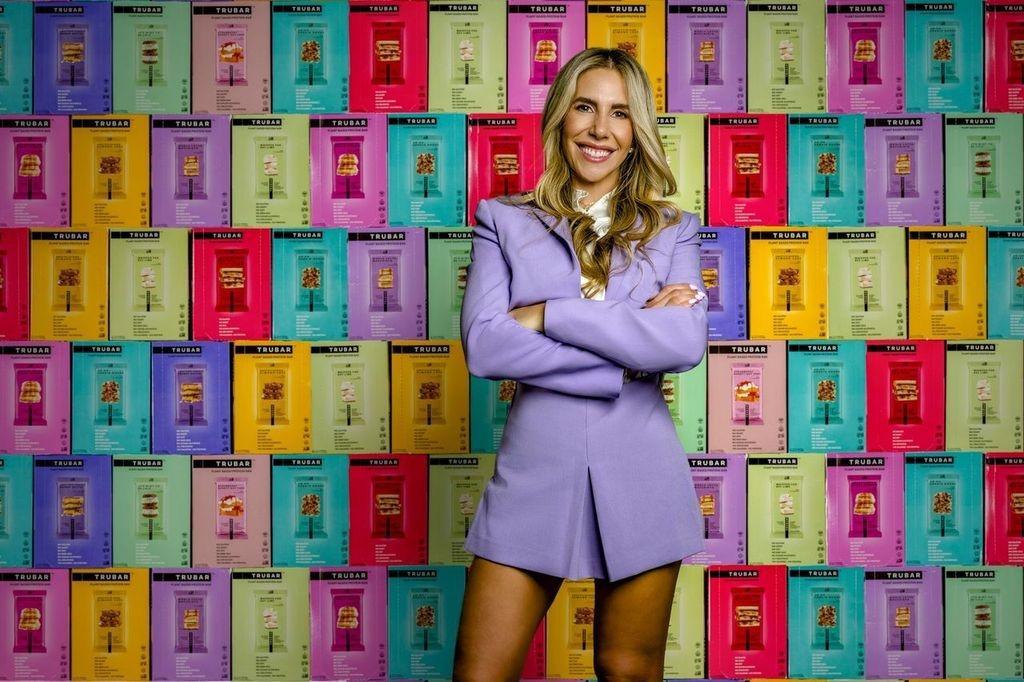Most people walk into Target with a mission: get in, get what you need, and get out. For Erica Groussman, a trip to the retail chain last month meant something more.
“Seeing Trubar on the shelf at Target for the first time was a ‘pinch-me’ moment,” says Groussman, founder and CEO of Trubar. “After years of work, to walk in and see it there was surreal.”
But browse any snack aisle and it’s clear there’s no shortage of protein bar brands to shop from, with Kind, RxBar, MacroBar, and Quest among the competition. Trubar seeks to differentiate itself by tackling a growing debate in the nutrition world: are seed oils beneficial or harmful? Colleen Coffey, lead nutritionist at Sakara Life, wrote in a Sakara blog that the chemical processes that govern a majority of industrial varieties are “not only harmful to the environment, but also harmful to our bodies—and particularly our endocrine system.”
Trubar emphasizes its ingredients are seed oil-free, as well as gluten-free, soy-free, sugar-alcohol free and plant-based protein bars. This helped Trubar find its way into more than 15,000 retailers, including Whole Foods, Costco, Amazon, CVS, and more. Since its debut in 2019, Trubar has surpassed $50 million in revenue in 2024 (with the next goal to do $100 million annually by 2026).
Trubar’s success started from a mom just looking for a better protein bar, she says. “The early days were tough. I was juggling being a mom while trying to get a business off the ground. There were moments—late nights, long weeks—when I wasn’t sure it would all come together. But I never let that uncertainty stop me from moving forward.”
Miami-based Trubar offers 12 indulgent, dessert-inspired flavors, with festive names like Daydreaming About Donuts and Smother Fudger Peanut Butter. The bars are designed for busy, health-conscious consumers. “I started Trubar because I couldn’t find a protein bar that tasted indulgent but was made with clean ingredients that I trusted,” she says. Groussman grew up watching her mom try a million different diets, but wanted to create something that felt fun, satisfying, and not restrictive for herself and her two children, now ages 11 and 13. “I wanted it to taste like dessert, but make it with real ingredients that made you feel good.”
Before there were factories, trucks, offices, distributors, or even capital, there was just family and constant runs to the post office. Groussman’s loved ones helped pack and ship bars by hand from their kitchen, one by one. “In the beginning, we were doing everything ourselves—including shipping. My family was a huge part of those early orders. It was truly a team effort and a reminder of how scrappy startups really are at the start.”
Groussman shares that she “bootstrapped, rebranded, pitched, repitched, and built a business from the ground up.” After about three years of operating as a self-funded business, she grew Trubar into a well-capitalized brand by selling a majority stake to Simply Better Brands Corp., leveraging institutional support to scale its operations. Today, Trubar has surpassed one million bars sold per year, and pulls in an estimated $1 million in monthly Amazon sales.
But Groussman adds that’s not to say that her job as Founder and CEO gets any easier now that Trubar “seems” to be a well-oiled (but not seed oil!) machine, especially when the 9-5 is only half the career. “Like every working parent, some days feel like a win, others like a juggling act. I focus on being present where I am—at work or with my kids—and I’ve learned to accept that balance isn’t always perfect. Having a great team at home and at work helps a lot.”
Like all moms and entrepreneurs , Groussman says every day tests her ability to problem-solve. “Whether it’s a supply chain delay, a packaging issue, or a last-minute retailer change, part of leading a brand is solving problems quickly and calmly. I’ve learned to trust my team and focus on solutions, not panic.”
What once started in her home kitchen has turned into a brand name supported by a devoted base of health-conscious moms, kids, fitness enthusiasts, as well as celebrity fans like Bethenny Frankel and Halle Berry.
“Scaling while maintaining our standards is our biggest challenge,” Groussman admits. “Trubar is indulgent but clean. As we expanded into more retailers, it was essential not to compromise on quality, sourcing, or our brand voice.”
The company now manufactures in multiple U.S. plants to meet demand and partners with national warehousing and logistics firms for distribution across Amazon, retail chains, and direct-to-consumer channels. A dedicated ops team oversees inventory and freight—“a complex system that’s only gotten tighter as we’ve scaled,” she says.
Next up? More flavors, strategic partnerships, and new product iterations. “We’re constantly experimenting with new concepts that feel nostalgic, delicious, and still align with our clean ingredient standards.”
And speaking of nostalgia, Groussman says she has goals to distribute in her current home of Miami and birthplace of upstate New York. “More airports and on-the-go channels, too. Anywhere people snack—we want to be there.”

